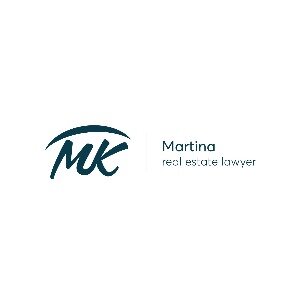Best Real Estate Lawyers in Czechia
Share your needs with us, get contacted by law firms.
Free. Takes 2 min.
Free Guide to Hiring a Real Estate Lawyer
Or refine your search by selecting a city:
List of the best lawyers in Czechia
About Real Estate Law in Czechia
Real estate law in Czechia covers the rules and regulations that govern the ownership, use, and transfer of real estate properties, including lands and buildings. As the country has seen significant economic growth and increasing interest from both domestic and foreign investors, understanding the complexities of Czech real estate law has become crucial for successful property transactions. Czech real estate is governed by the Civil Code and Real Estate Cadastre Act, among other regulations.
Why You May Need a Lawyer
Engaging a lawyer is essential in numerous scenarios involving real estate in Czechia. Some common situations include:
- Purchasing or selling a property, where a lawyer can assist with drafting and reviewing contracts to ensure all legal aspects are covered.
- Leasing agreements for either landlords or tenants, which may require legal expertise to ensure terms are fair and compliant with local laws.
- Resolving disputes over property boundaries, ownership, or other related issues.
- Navigating the complexities of real estate inheritance, which may involve dealing with multiple heirs or differing interpretations of property rights.
- Understanding zoning and land-use regulations that could impact property development plans.
Local Laws Overview
Key aspects of local laws relevant to real estate in Czechia include:
- Property Ownership Types: Freehold ownership is common in Czechia, where the owner has rights to the property indefinitely. There are also leasehold interests, particularly in urban areas.
- Transfer of Property: Legal procedures for transferring property need to be rigorously followed, which includes notarizing the property transfer deed and registering it with the Real Estate Cadastre.
- Land Use Regulations: These dictate how property can be used, such as residential, commercial, or agricultural, and require compliance to avoid penalties.
- Real Estate Taxation: Includes various taxes such as property tax, acquisition tax, and VAT in certain transactions, all of which need careful legal consideration.
- Building Regulations: Laws governing construction, renovation, and compliance with safety and zoning standards.
Frequently Asked Questions
What documents are required for a real estate transaction in Czechia?
Typically, documents such as the sale contract, proof of identity, property title deed, and a certificate from the Cadastre are needed.
Is it possible for foreigners to buy property in Czechia?
Yes, foreigners can purchase real estate in Czechia, although there may be specific requirements or restrictions depending on their residency status.
How long does it take to register a property transfer in the Real Estate Cadastre?
Registering a property transfer usually takes about 30 days, but this may vary depending on the complexity of the transaction.
What are the typical costs involved in purchasing real estate?
Costs can include the purchase price, legal fees, notary fees, property taxes, and possibly a real estate agent's fee.
Do I need a notary for real estate transactions?
Yes, a notary is required to verify and notarize the property transfer deed as part of the legal process.
Can I lease my property to third parties?
Yes, property owners can lease their properties, but it's important to create a legally sound lease agreement that complies with local laws.
What should I do if there is a dispute over property boundaries?
Consulting with a legal expert or hiring a surveyor can help address boundary disputes, potentially leading to a resolution through negotiation or legal action.
Can I change the use of my property from residential to commercial?
Changing property use requires compliance with zoning and land-use regulations and may need approval from local authorities.
What happens if I inherit property with existing encumbrances?
You inherit the property along with any encumbrances, such as mortgages or easements, which should be addressed through legal assistance.
Are there any risks in buying off-plan properties?
Buying off-plan carries risks, like construction delays or changes in developer plans, so it's important to thoroughly vet the developer and include protective clauses in contracts.
Additional Resources
Several resources can assist anyone seeking legal advice in real estate matters:
- Ministry of Regional Development: Provides guidelines on housing and construction policies.
- Real Estate Cadastre Office: Where property registrations and information are managed.
- The Czech Bar Association: Offers resources for finding qualified legal professionals in the field of real estate.
- Public libraries and online legal databases: Provide access to the Civil Code and other relevant laws governing real estate in Czechia.
Next Steps
If you require legal assistance in real estate, consider the following steps:
- Consultation: Schedule a meeting with a qualified real estate lawyer to discuss your specific situation and legal needs.
- Preparation: Gather all relevant documents and information before meeting with your lawyer.
- Decision-Making: Use the lawyer's advice to make well-informed decisions about your real estate matters.
- Formal Engagement: Formally engage a lawyer to represent you in transactions or disputes as necessary.
Lawzana helps you find the best lawyers and law firms in Czechia through a curated and pre-screened list of qualified legal professionals. Our platform offers rankings and detailed profiles of attorneys and law firms, allowing you to compare based on practice areas, including Real Estate, experience, and client feedback.
Each profile includes a description of the firm's areas of practice, client reviews, team members and partners, year of establishment, spoken languages, office locations, contact information, social media presence, and any published articles or resources. Most firms on our platform speak English and are experienced in both local and international legal matters.
Get a quote from top-rated law firms in Czechia — quickly, securely, and without unnecessary hassle.
Disclaimer:
The information provided on this page is for general informational purposes only and does not constitute legal advice. While we strive to ensure the accuracy and relevance of the content, legal information may change over time, and interpretations of the law can vary. You should always consult with a qualified legal professional for advice specific to your situation.
We disclaim all liability for actions taken or not taken based on the content of this page. If you believe any information is incorrect or outdated, please contact us, and we will review and update it where appropriate.
Browse real estate law firms by service in Czechia
Czechia Attorneys in related practice areas.
Browse real estate law firms by city in Czechia
Refine your search by selecting a city.











